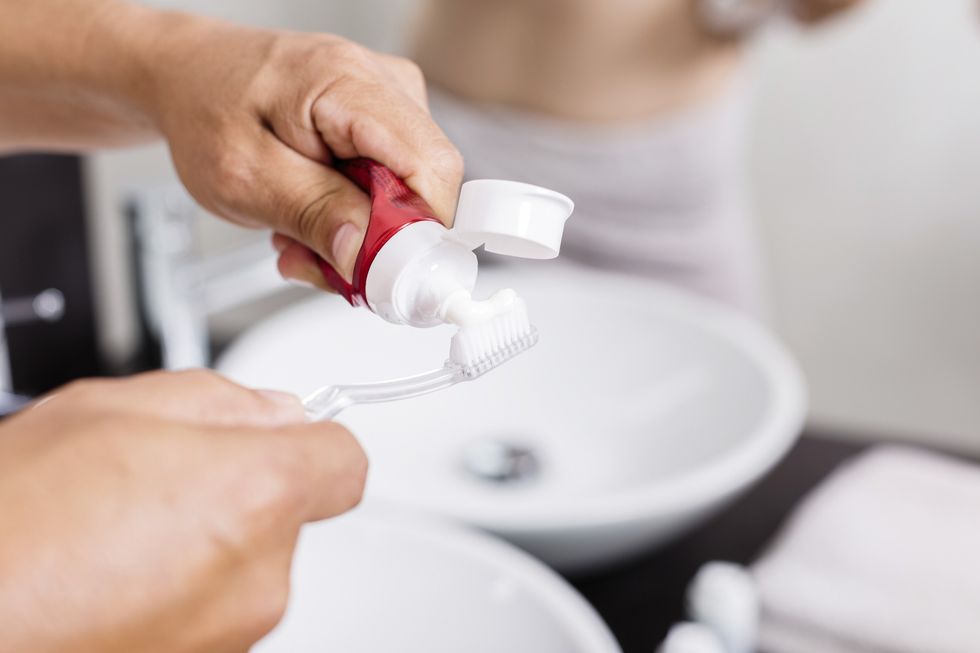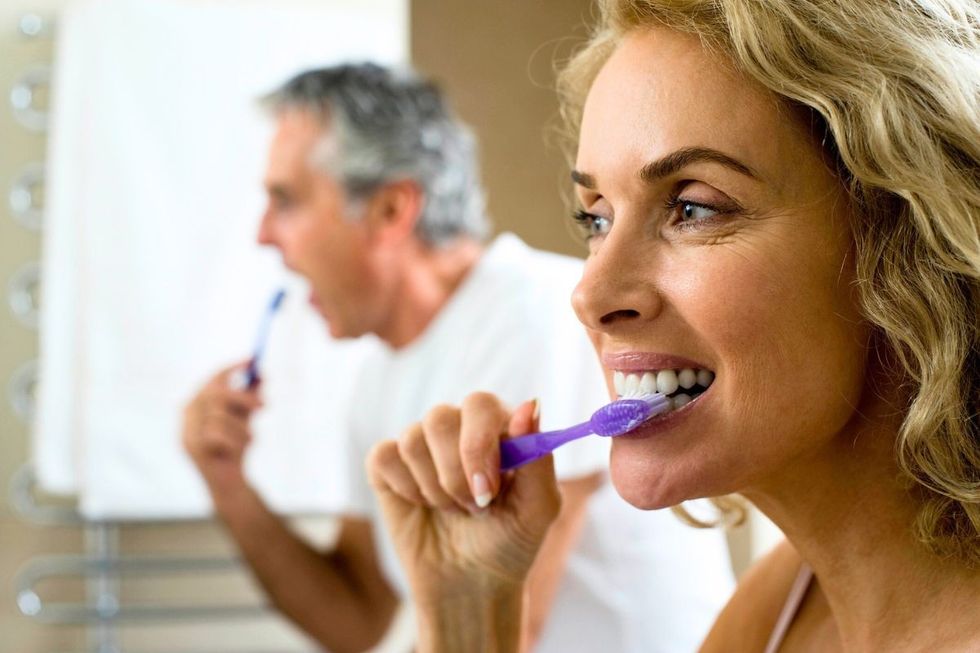Adults with poor oral hygiene are given dementia warning - how to reduce your risk of developing Alzheimer's disease

Britons can reduce their risk of developing Alzheimer's with a few simple oral health hacks
Don't Miss
Most Read
Latest
While Britons may think they have perfected the art of brushing their teeth, many may be missing a trick.
According to experts, brushing your teeth correctly - as well as other oral health hacks - could reduce your risk of developing Alzheimer's disease. One dental hygienist recommends the "Inside, Outside, Upside, Down!" method.
A study published in the National Library of Medicine provided evidence that there is an association between periodontal pathogens and Alzheimer's disease. In the study, this association was stronger for older adults.
Periodontal pathogens are bacteria that significantly contribute to periodontitis (gum disease).
Do you have a health story you'd like to share? Contact our team by emailing lifestyle@gbnews.uk.

'A toothbrush cleans just 60 per cent of the tooth'
|GETTY IMAGES
DenTek - which specialises in oral care - spoke about the research. An expert said: "A recent study found that older adults with signs of gum disease and mouth infections are more likely to develop Alzheimer’s, the most common cause of dementia.
"The bacteria from gum disease and infections in the mouth can travel through the bloodstream to the brain, negatively impacting its health. The better the brain ages, the better it can ward off dementia."
To reduce their chances of developing the syndrome, Britons can hone their oral care routine.
Dental hygienist Hannah Ripley from Zandielle Dental Clinic recommends the “Inside, Outside, Upside, Done!” approach.
She said: "This involves cleaning between the teeth first, followed by the outside (brushing your teeth) and the upside (tongue) but not rinsing."
The tools you use for cleaning your teeth and the surrounding area could be paramount.
According to the experts, an electric toothbrush is much more advantageous than a manual one as it is more effective at removing plaque and bacteria.
Electric toothbrushes with built-in timers help you brush for the recommended time of two minutes.
However they added that a toothbrush cleans just 60 per cent of the tooth and only 31 per cent of us clean between the teeth on a regular basis.
To reach areas that your toothbrush can't reach, oral hygiene products such as floss picks and interdental brushes "are a must".
LATEST DEVELOPMENTS

'It really pays to invest in the health of your teeth with a proper oral care routine'
|GETTY IMAGES
Britons mustn't forget about cleaning their tongue when it comes to oral hygiene and potentially leading to an increased risk of dementia.
The experts explained: "The tongue harbours approximately 50 per cent of the bacteria in your mouth which can cause cavities and gum disease. The bottom line is that if you're not cleaning your tongue, you're allowing bacteria to have a home in your mouth so the cleaner you keep your tongue the better."
Use a toothbrush or tongue cleaner to brush the tongue surface for 15-30 seconds after brushing your teeth.
Senior brand manager Jennifer Hudson said: “It really pays to invest in the health of your teeth with a proper oral care routine. Most people know to brush their teeth but too few include interdental and tongue cleaning. By adding these important areas to your oral hygiene routine, the benefits can reach far beyond just the health of your teeth.”
The latest breakthrough in dementia research is that within five years, a blood test could be used to detect dementia in Britons over 50.











